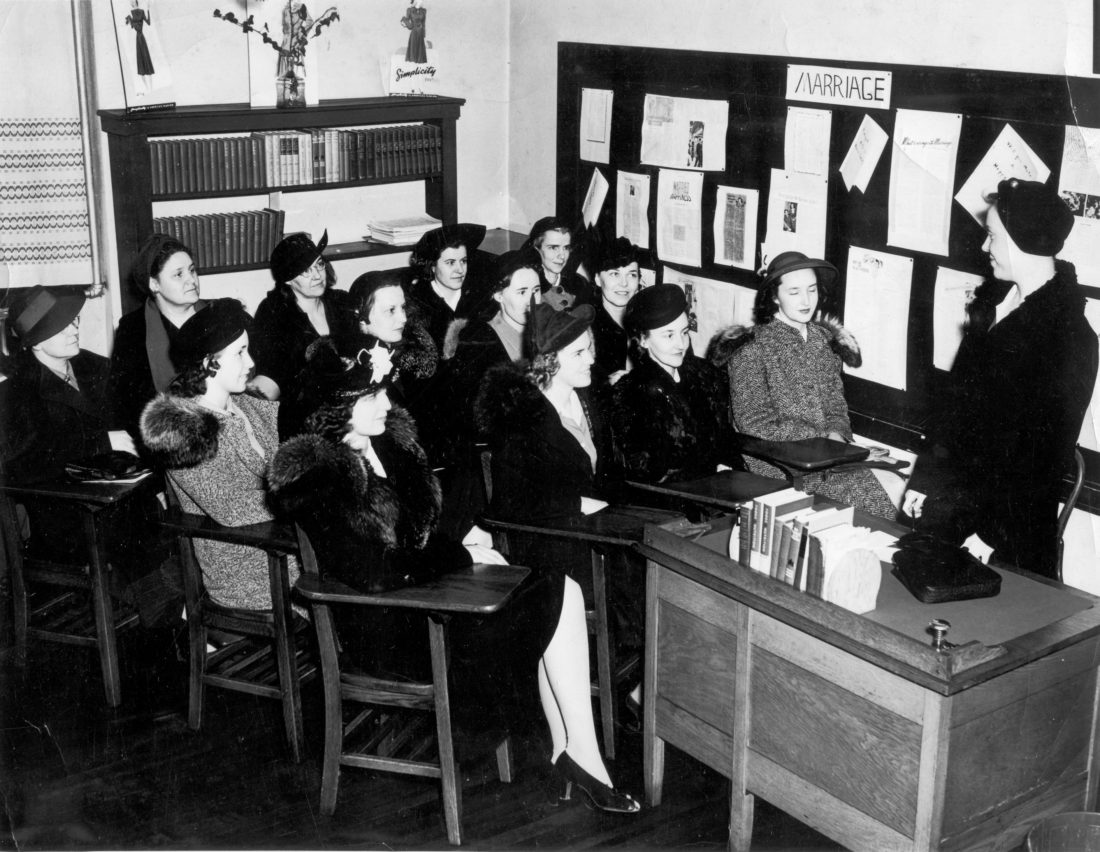As 1912 came to an end, The Asheville Citizen warned against an upward trend. In an editorial published on Dec. 30, the paper declared:
“You cannot have failed to have noticed in the last year or two a growing sentiment, although partially a forced one, in favor of what is termed ‘sex education’ in our school and in the homes. To be brief, we are advised to initiate our children, no matter how young, in the deep mysteries of sexual problems. Ere they have reached their teens we should teach our sons and daughters more than our fathers and mothers knew at maturity. As to the wisdom or unwisdom of such a course, the parent must be the sole judge; he alone can determine the age at which such instruction can be given, but we have no hesitation in stating that the imparting of knowledge may be overdone, and more harm than good accomplished.”
The editorial featured excerpts from a recent book review in The Interstate Medical Journal. The title under consideration was Ira S. Wiles’ Sex Education. Published that year, Wiles’ work chastised parents for their unwillingness to discuss sex with their children. “Parental timidity, or shall I say cowardice, has made it difficult for parents to impart the information regarding reproduction or even the difference of the sexes to their children,” Wiles wrote.
The Interstate Medical Journal lambasted Wiles’ book, claiming its unoriginal talking points simply added to a growing list of similar works. “[T]he literature on this subject is so overwhelmingly extensive that repetition has become its hall-mark,” the journal wrote.
Nevertheless, the issue of sex education remained a hot topic, both locally and nationally. “To what extent can sex instruction be given in the public schools?” The Asheville Gazette-News wrote on Sept. 29, 1913. According to the paper, a recent report by the U.S. Bureau of Education offered varying opinions on the matter, ranging from “a detailed plan of sex instruction beginning in the elementary schools to a determined opposition to any form of sex education whatsoever.”
The following year, in a July 11, 1914, editorial, The Asheville Citizen applauded the National Education Association’s formal opposition to sex education in the classroom. The association, the paper wrote, “was certainly in its proper sphere when it touched the subject of so-called sex hygiene and publicly declared that the school room is no place for its discussion.”
The editorial continued:
“Few men or women have any patience with or belief in false modesty, and the attitude of the association in regard to this question cannot be looked upon as prudery; rather it is commendable in its desire to put the responsibility of such instruction where it belongs — in the hands of parents.”
To bring sex education into the classroom, the editorial concluded, “is to rob the discussion of its sacredness and make it the subject of flippant and demoralizing remarks.”
Interestingly, a Dec. 6, 1917, article in The Asheville Citizen suggests residents did eventually come around to the idea of sex education. According to the paper, The Citizen’s Free Home Economics School was slated to host a class later that week. Taught by a Mrs. Vaugh, the course promised to cover a variety of topics, including food, health and morality.
Buried deep within the course description, the paper added:
“The lecture will touch on sex hygiene, a question that is much discussed in scientific circles at the present time, and [Mrs. Vaugh] will tell in a plain way what should be told, when it should be told, and the proper answers to give the invariable questions that children will ask at some time or another. … ‘Because I am going to speak so very plainly,’ Mrs. Vaughn explained, ‘I am going to ask that any woman who is afraid of the truth and that does not think that honesty and modesty are the same thing, to please not attend the lecture as she will only receive displeasure from it.’”
Editor’s note: Peculiarities of spelling and punctuation are preserved from the original documents.




Before you comment
The comments section is here to provide a platform for civil dialogue on the issues we face together as a local community. Xpress is committed to offering this platform for all voices, but when the tone of the discussion gets nasty or strays off topic, we believe many people choose not to participate. Xpress editors are determined to moderate comments to ensure a constructive interchange is maintained. All comments judged not to be in keeping with the spirit of civil discourse will be removed and repeat violators will be banned. See here for our terms of service. Thank you for being part of this effort to promote respectful discussion.